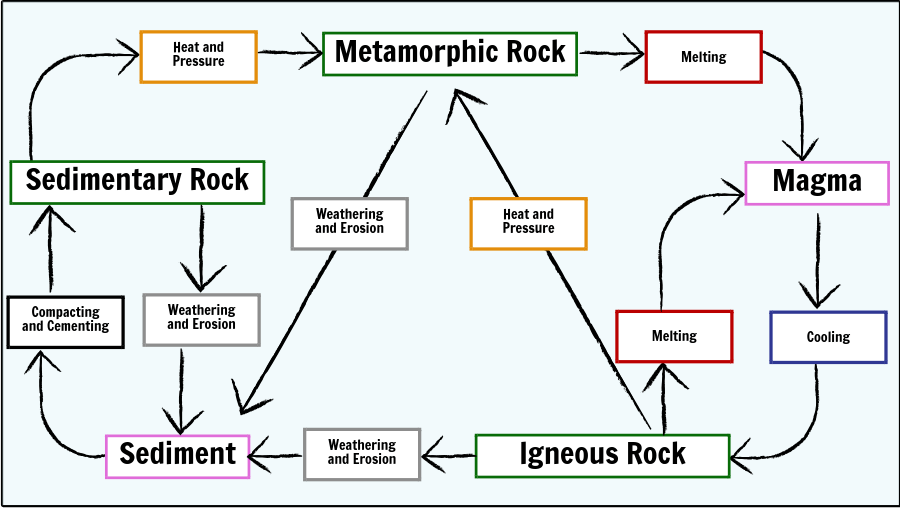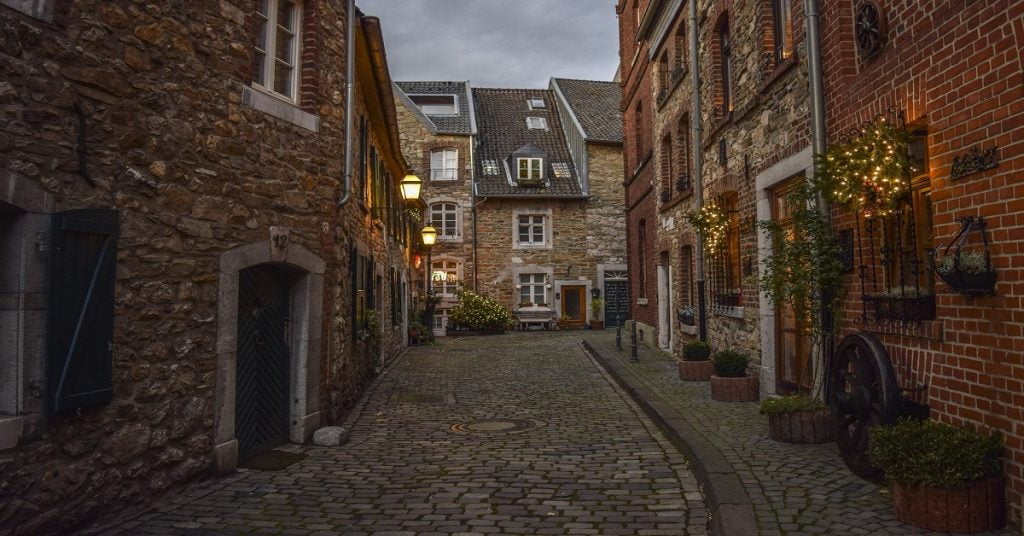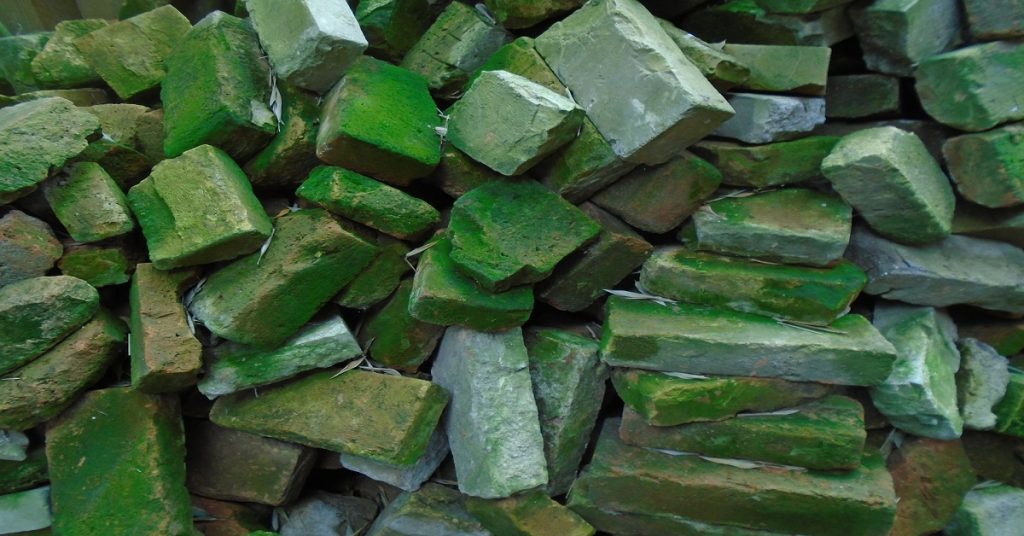Rock Cycle

James Hutton regarded as “Father of Geology” was an eighteenth century scientist. He developed the concept of the rock cycle.
Rock cycle is a group of changes. The rock cycle is a model describing the formation, breakdown, and reformation of a rock from one type to another under the influence of various forces.
Rock cycle is a slow process of rocks down the earth surface and then back up again. Rocks often change during this process. Different types of rock move around the cycle in number of ways. It takes millions of years for the rocks to change from one form to another.
The rock cycle is driven by two forces:
- Earth’s internal heat moving the material around in the core and the mantle and leading to slow but significant changes within the crust.
- The movement of water, ice and air at the surface, and is powered by the sun, which is also termed as hydrological cycle.
The various processes involved in rock cycle are as follows:


Crystallization
Magma is a hot liquid containing melted minerals. On cooling of hot magma present within the Earth surface, igneous rocks are formed. Depending on whether the cooling of magma takes place above or below the earth surface, igneous rocks are classified into extrusive and intrusive igneous rocks. Based on the chemical composition of the magma and the rate at which the magma cools down, formation of different igneous rocks take place. Based on the texture and composition of igneous rocks, they can be classified into different categories.
Erosion and Sedimentation
The huge masses of already existing igneous rocks on exposure to erosion and weathering, break down into smaller fragments called as sediments. The process of weathering is different from erosion. Erosion is the process of worn out of rock surfaces by the action of gravity, wind, water, ice or glacier, which are in turn carried away by those agents. weathering is the process of breaking of rocks into smaller fragments by the action of rainwater, temperature or any biological activity. The broken rock pieces are not carried away from the location of parent rock.
The formation of sediments occur as a result of weathering and erosion of igneous and metamorphic rocks. As the layers of sediments mount upon one another, the sediments beneath them are buried. The weight of the above layers compacts the sediment grains present in the layers below them. The deposition of minerals in the space between the sediment grains cements the sediment grains together. This process of compaction and cementation of sediments results in the formation of sedimentary rocks.
Metamorphism
When the igneous rocks and sedimentary rocks are subjected to high temperature, pressure or any chemical activity, the process of metamorphism takes place. The process of metamorphism result in change in chemical composition of igneous rocks. The newly formed rocks with different chemical composition are termed as metamorphic rocks. Metamorphic rocks possess a new mineral composition and/or texture.
The magma forms due to the melting of any of the three types of rocks viz., igneous rocks, sedimentary rocks and metamorphic rocks.
The movement of Earth’s tectonic plates generates heat. When these tectonic plates collide, formation of mountains take place. These mountainous metamorphic rocks get broken up and washed away by the agents of weathering. The broken sediments from these mountains form new sedimentary rocks. The sedimentary rock melts to form magma. The cooling of magma forms igneous rocks. Thus, the rock cycle continues.






First of all I would like to say excellent blog! I had a quick question that I’d like to ask if you don’t mind.
I was interested to know how you center yourself and clear
your head before writing. I’ve had difficulty clearing my thoughts in getting
my ideas out there. I do enjoy writing however it just seems like the first 10 to 15 minutes are wasted
just trying to figure out how to begin. Any suggestions
or tips? Appreciate it!
Hi Noberto,
Could you kindly contact through civilunfoldian@gmail.com. We will discuss.